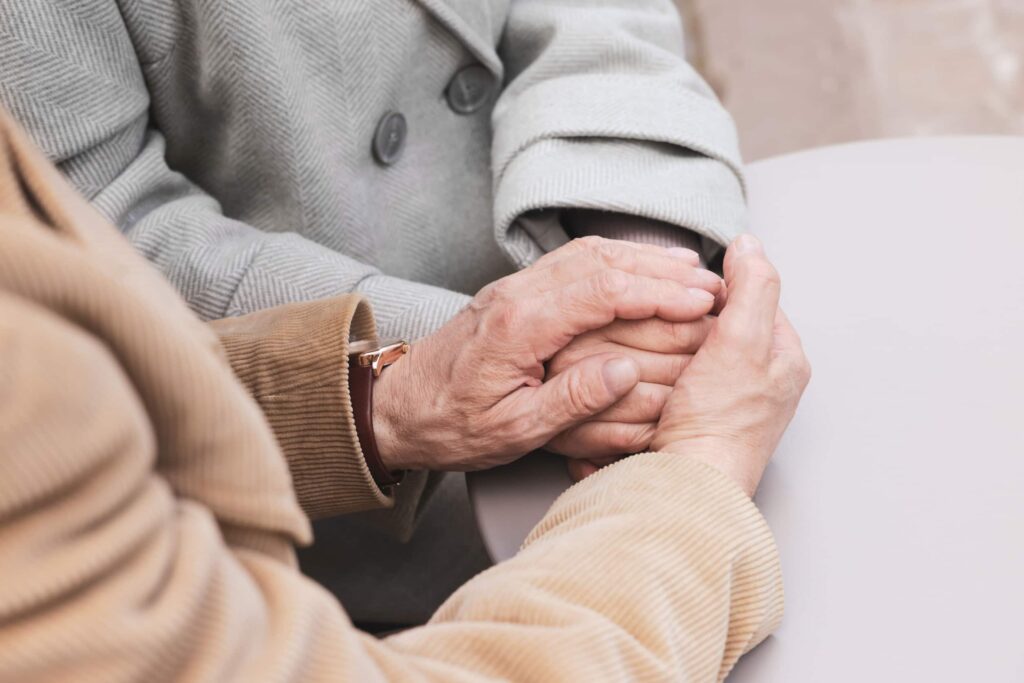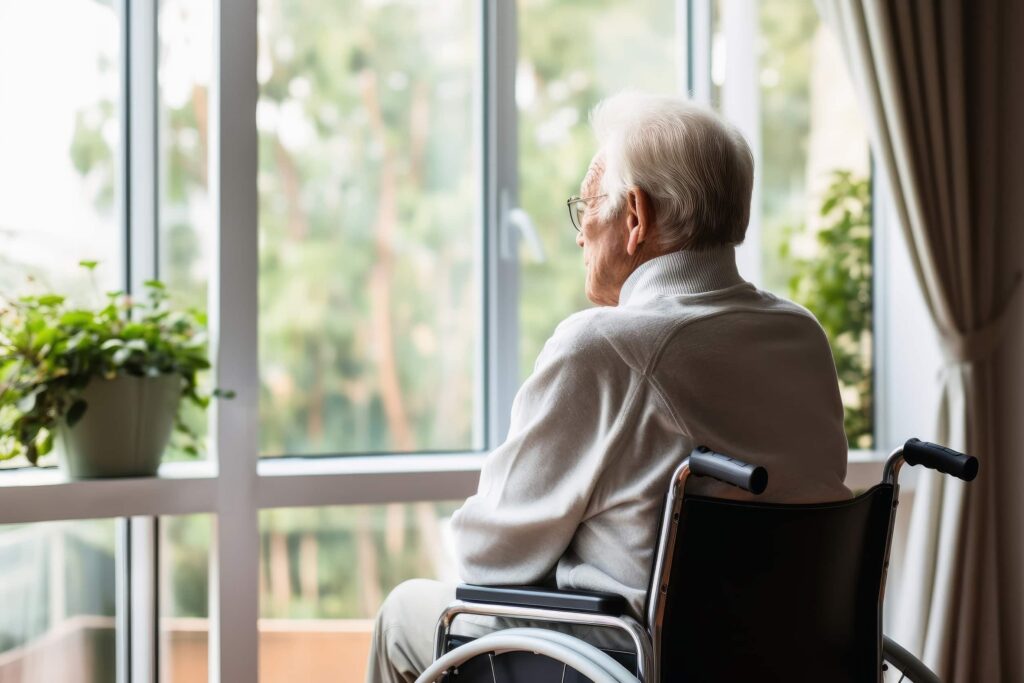Summary
Discover the 10 signs your elderly parent needs help at home. Learn how to spot mobility, memory, and health issues early, and explore how in-home care services can provide safety, comfort, and dignity for your loved one.
As parents age, it can be difficult to know when they need more help at home. Small changes in daily habits may seem harmless, but they often point to bigger challenges. Recognizing the 10 signs your elderly parent needs help can prevent accidents, protect their health, and improve overall quality of life.
In this guide, we’ll cover the most common warning signs that may signal your aging parent needs additional support, from mobility struggles to missed meals. We’ll also explain how in-home care services and compassionate caregivers can provide the right balance of independence and safety.
By the end, you’ll know the 10 signs your loved one needs help, how to respond, and when it may be time to consider in-home support for your senior loved one.

1. Mobility Challenges: When Walking Becomes a Struggle
Declining mobility is one of the clearest signs your elderly parent may need extra support. If they avoid stairs, cling to furniture, or tire quickly when walking, this could be a sign of weakness, balance problems, or early frailty.
Loss of mobility doesn’t just limit independence , it may increase the risk of falls and unexplained bruises, which are among the most serious health concerns for older adults. Even a single fall can lead to hospitalization, reduced confidence, and long-term loss of independence.
If your loved one may need help moving around safely, it’s time to consider in-home care or simple home safety changes like grab bars, ramps, or mobility aids. Recognizing this early helps maintain independence and prevents injury.
2. Forgetfulness and Dementia Concerns
Occasional forgetfulness happens to everyone, but when memory problems affect daily routines, it may indicate something more serious. If your aging parent misses appointments, forgets to take medications, or shows signs of confusion, these could be signs of dementia.
Cognitive decline often starts small, repeating questions, misplacing items, or forgetting conversations. Over time, these lapses may be a sign your loved one needs structured support. Without help, unmanaged medical conditions and safety risks grow.
A compassionate caregiver or in-home care services can assist with reminders, organization, and companionship, ensuring your loved one is safe while preserving dignity.
3. Unexplained Bruises and Injuries
Finding unexplained bruises on your parent’s arms or legs is a major red flag. These could be signs of falls, bumping into furniture, or struggling with daily movement.
Falls are among the most serious health threats for older adults, often resulting in broken bones or hospital stays. Even if the injuries seem minor, repeated bruising is one of the strongest warning signs that may signal declining balance or strength.
This is when in-home care offers real solutions , from mobility assistance to home safety adjustments. Recognizing bruises as more than “just clumsiness” helps prevent serious accidents.
4. Decline in Personal Care and Hygiene

If your elderly parent may need help with bathing, grooming, or changing clothes, you might notice strong body odor, unwashed laundry, or neglected hair and nails. These signs that your parent is struggling with personal care should not be overlooked.
Declining hygiene may indicate deeper issues like depression, mobility problems, or even early dementia. For many, this isn’t about laziness, it’s a quiet signal that your loved one may need consistent support.
Home care can provide gentle assistance with bathing, dressing, and grooming, ensuring dignity and comfort while avoiding health risks such as infections.
5. Difficulty Managing Household Tasks
As parents age, everyday household chores can become overwhelming. Overflowing laundry, dirty dishes, unpaid bills, or neglected home maintenance are common warning signs that may signal your parent is struggling.
Your loved one is experiencing more difficulty if you see spoiled food in the fridge, unopened mail, or cluttered living spaces. This not only impacts comfort but also raises safety concerns like fire hazards or pests.
In-home care services or part-time help with household tasks can ease these burdens, allowing your aging loved one to focus on what matters most, health and happiness.
6. Nutritional Decline and Missed Meals
A balanced diet is vital for older adults, yet many skip meals or rely on unhealthy snacks. If your parent is losing weight, appears fatigued, or has expired food in the fridge, it could be a sign they’re not getting the nutrition they need.
Reasons vary: some lack the mobility to cook, others forget meals due to dementia, and some lose the motivation to prepare food after losing interest in things they used to enjoy.
Solutions include meal delivery service, meal planning, or in-home care that provides meal preparation and companionship. Proper nutrition is essential to preserving your parent’s quality of life.
7. Signs of Depression or Social Withdrawal

If your loved one is experiencing sadness, isolation, or loss of interest in favorite activities, these signs of depression must not be ignored. Withdrawal from social contact may indicate loneliness or declining emotional health.
This isn’t just “old age.” It’s one of the signs your loved one needs emotional and social support. Left unchecked, depression can worsen other health conditions and reduce the will to stay active.
A dedicated caregiver or regular senior care visits can provide companionship, emotional support, and engagement in activities, ensuring your loved one is safe both physically and mentally.
8. Neglected Medical Needs
Missing doctor’s appointments, forgetting medications, or ignoring treatment plans are clear signs your elderly parent needs structured support. Unmanaged medical conditions quickly lead to serious health risks.
If you notice recurring hospital visits or worsening symptoms, this is one of the most urgent signs your parent needs help. Even small lapses in care can spiral into emergencies.
In-home care services can include medication reminders, appointment scheduling, and consistent monitoring. This ensures your loved one may need less emergency intervention and more preventive care.
9. Resistance to Asking for Help
Many older adults avoid admitting they need help. Pride, fear of losing independence, or not wanting to burden family means they often stay silent, even when it’s clear that parents need more help.
You might notice they say “I’m fine” even when tasks remain undone, or they minimize falls and struggles. This resistance itself could be a sign that intervention is needed.
Approach with kindness, talk to your parent about their wishes and frame help as a way to preserve independence, not take it away. Sometimes hiring a geriatric care manager can help guide families through these conversations.
10. Overall Decline in Independence
Finally, when several small struggles add up, it becomes clear your parent may need help. Missed meals, cluttered living space, poor hygiene, and emotional changes combined paint a bigger picture: your loved one may no longer be safe living alone.
This is when it may be time to consider in-home care or even long-term care solutions. Recognizing the signs your aging parent needs additional support isn’t about loss, it’s about giving them the chance to live comfortably, safely, and with dignity.
Guiding Souls Home Care provides personalized care options, ensuring your senior loved one receives exactly the care they need, whether it’s a few hours a week or full-time support.
Recognizing the 10 Signs Early Can Make All the Difference

Caring for an aging parent isn’t easy. Families often wonder when it’s time to step in and provide extra support, and the answer lies in paying attention to the 10 signs your loved one needs help.
From mobility struggles to forgetfulness, unexplained bruises, and signs of depression, these changes are not just part of “normal aging.” They are warning signs that may signal it’s time to consider in-home care or other forms of support. Ignoring them only increases the risks of accidents, serious health complications, and emotional decline.
The good news is, there are solutions. With the right care plan, families can ensure their loved one may continue living at home while receiving the care they need. Services like meal preparation, companionship, help with household tasks, and assistance with personal care make daily life safer and more enjoyable.
If you’ve noticed several of these 10 signs, it may be time to reach out for professional guidance. Guiding Souls Home Care specializes in compassionate, customized in-home care services, helping families find peace of mind and ensuring every senior loved one is supported with dignity, safety, and respect.
FAQs: Common Questions About In-Home Support for Parents
1. What are the first warning signs that my elderly parent may need help?
The most common early indicators are mobility challenges, increasing forgetfulness, and neglected personal care. These could be signs your parent is no longer safe managing everything alone.
2. Is forgetfulness always a sign of dementia?
Not always. Occasional memory lapses are normal, but frequent confusion, missed medications, or unsafe mistakes may indicate dementia or another cognitive concern. It’s best to consult a doctor.
3. What if my parent refuses to accept help?
This is very common. Many older adults fear losing independence. Start by gently talking to your parent about safety and comfort. Sometimes involving a neutral professional, like a geriatric care manager, can help.
4. How can in-home care improve my loved one’s quality of life?
In-home care offers assistance with meals, bathing, and medical needs, but it also provides companionship and reassurance. It allows seniors to stay at home while still getting the care they need, which often improves both mood and health.
5. When should families consider long-term care instead of in-home care?
If your loved one may need round-the-clock monitoring for serious health conditions or advanced dementia, long-term care may be more appropriate. However, many seniors may need only partial or flexible in-home assistance first.

